 Dear brothers and sisters,
Dear brothers and sisters,
Last week, I mentioned I wouldn’t dive into lengthy preaching, but here we are sharing the wisdom.
Many of you have known me for a long time. Imagine if one Sunday I stood before you and declared, “I am the bread of life. Whoever believes in me will never die.”
Would you believe me, knowing who I am? Likely not. You’d think, “Isn’t this Leonard? He used to come here years back.”
Food. It’s something we all talk about. Everywhere you go, food matters. You see people lined up for food because they are hungry. But what is food, really?
Let me turn this question to you: What is food? It’s sustaining, nourishing, and comforting. That’s what some of you have said, and you’re right. Food is anything that you consume that sustains you. But there’s more to it—let’s explore.
The Essence of Food
Everything God created as a living organism eats. Ants eat, birds eat, even lions eat their prey. Similarly, we clamor for food. The ancient Romans would eat to their fill, go to the washroom to vomit, and come back to eat more. Food was that significant to them.
Last week, I mentioned that Jesus said, “I am the bread of life.” This statement has profound implications. Bread signifies sustenance and nourishment. But Jesus wasn’t just referring to physical bread; He was talking about something much deeper—spiritual nourishment.
The Significance of Bread
In many cultures, bread is a staple. In my hometown, for instance, bread includes corn and plantain dough. In ancient times, bread was crucial to daily sustenance. Jesus’ statement about being the bread of life was monumental. He said, “I am the bread of life. He who eats this bread will never be hungry.”
For the people around Jesus, bread was not just food; it was life. When He declared Himself as the bread of life, He was making a theological statement—He was claiming to be God. This was controversial at the time. They wondered, “Isn’t this the carpenter’s son?” Yet, Jesus boldly said, “Before Abraham was, I am.”
The Implication of “I Am”
When Jesus said, “I am the bread of life,” He was equating Himself with God. The phrase “I am” echoes back to when God spoke to Moses through the burning bush, saying, “I am who I am.” This sacred name signifies God’s eternal presence and sufficiency.
So when Jesus used “I am,” He was not just talking about physical sustenance but spiritual sufficiency. He was telling us that He is enough, that in Him we find all we need.
Understanding Spiritual Food
As Christians, we often come to church looking for physical solutions, focusing on temporal needs. However, Jesus calls us to look beyond the physical. He offers spiritual food that changes our whole being, making us Christ-centered.
We often prioritize physical wealth and forget the spiritual riches that Jesus offers. The spiritual food Jesus provides transforms us, aligning our hearts and minds with God’s will. It feeds our soul in ways that physical food never can.
Jesus, the Door and the Bread
Jesus declared, “I am the door” and “I am the bread of life.” As my colleague noted, Jesus is also the way, the truth, and the life. No one comes to the Father except through Him. This means our spiritual journey begins with Jesus. He is the door to spiritual fulfillment and eternal life.
Final Thoughts
In conclusion, our priorities as Christians should be to seek spiritual nourishment over physical wealth. This involves setting our focus on Jesus and His teachings. Understanding that He is our spiritual bread and door means embracing the spiritual essence of His word.
As you engage with the scriptures, do so with the intent to inwardly digest them, using them to guide your life. Remember, Jesus is sufficient for all our needs—He is our spiritual food, and in Him, we find everlasting nourishment.
In the name of God the Father, the Son, and the Holy Spirit. Amen.
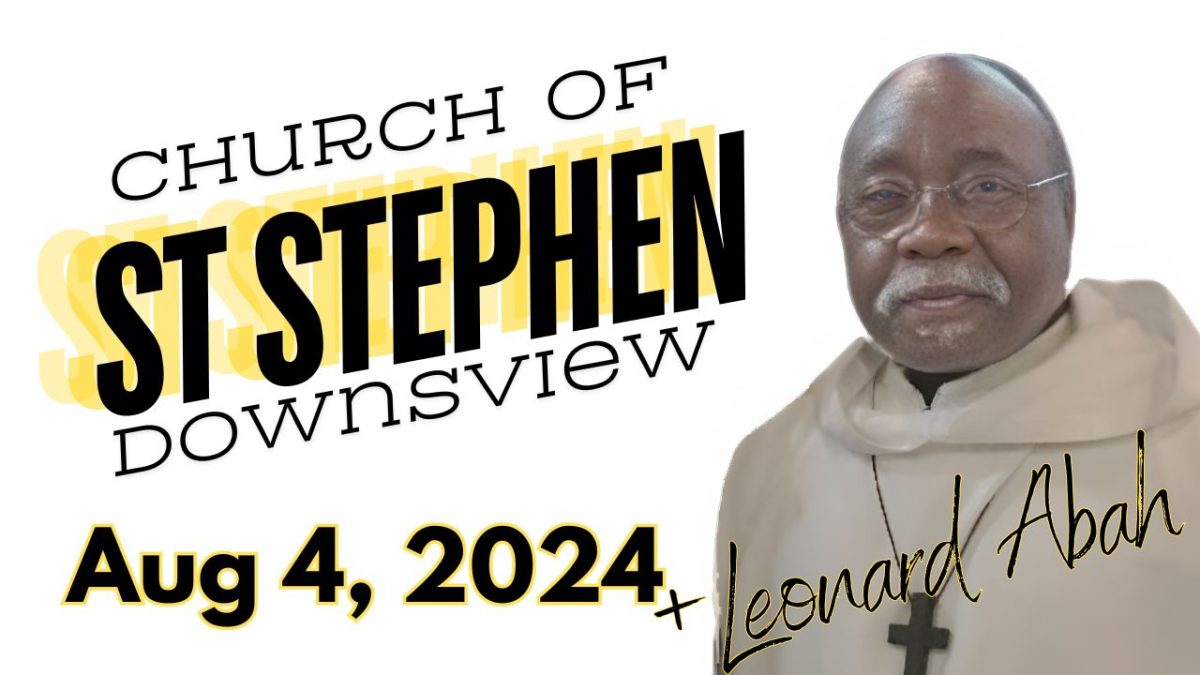 Dear readers,
Dear readers,
Today, I want to share some reflections on a poignant story that resonates deeply with our human experience—the story of David and Bathsheba. Whenever we read this story, our judgments vary. Some blame Bathsheba for bathing on the rooftop; others point fingers at David. The reality is, this story encompasses many layers of human actions and consequences.
Recently, I found myself pondering why this narrative, laden with so much moral complexity, is included in the Bible, a book we consider holy. My research led me to a profound realization about human frailty. David, before becoming king, had a heart that God himself cherished. He was close to God, a figure both revered and flawed. Theologians describe David as a king, priest, and prophet, yet his actions reveal his vulnerability.
David’s story, although ancient, mirrors our current realities. When bestowed with power, unchecked authority can lead to impunity, arrogance, greed, and corruption. These issues persist in our society today, affecting everyone from religious leaders to politicians. David’s narrative serves as a reminder that no one is immune to these flaws.
When the prophet Nathan confronted David, he did so with wisdom and diplomacy. Instead of outright condemnation, Nathan shared a parable that resonated deeply with David, leading him to realize his own guilt. David’s response is telling—he confessed and sought forgiveness. This act of contrition highlights a significant biblical theme: the power of sincere repentance and divine forgiveness.
Nathan’s method of guiding David to self-awareness and confession teaches us an essential lesson about judgment. We are often quick to judge others without understanding the full scope of their actions or motivations. David’s repentance and God’s forgiveness illustrate that no sin is too great if one sincerely seeks forgiveness.
Moreover, this story calls us to introspection. We must recognize our own flaws and seek divine forgiveness. God’s capacity to forgive is boundless if we approach Him with humility and genuine remorse.
Turning our focus to unity, another crucial teaching emerges from the Epistles of Paul. Paul emphasized that unity in the Christian community is not based on similarities, but on the love of God. Despite our diverse gifts and roles, we are united in our purpose to serve God. This unity is reinforced through fellowship—coming together to utilize our unique abilities for mutual edification.
The diversity of gifts within the Christian community mirrors the early church. Some were apostles, prophets, teachers, and seers, all working towards a collective goal. This collaborative effort underscores the importance of using our gifts responsibly and for the common good, rather than for self-aggrandizement.
Reflecting on our contemporary Christian landscape, I often marvel at the proliferation of churches. Despite this, there seems to be a disconnect between our faith and societal progress. It is crucial to remember that our gifts are meant to foster community and support one another, not create divisions.
Let us consider the metaphor of family. Each family has its own set of challenges, but ideally, it operates on mutual support and love. Similarly, the Christian community should function on these principles, helping each other grow in faith and love. This is the essence of our fellowship—a community built on compassion, understanding, and shared purpose.
In closing, I urge you to delve into the Gospel of John, particularly the passages where Jesus asks, “Who do people say I am?” Reflect on who Jesus is to you personally and how His teachings influence your life. Jesus declared, “I am the bread of life,” inviting us to find spiritual nourishment and fulfillment in Him.
May these reflections inspire you to seek unity, forgiveness, and a deeper understanding of our shared faith.
In the name of God the Father, God the Son, and God the Holy Spirit.
I hope to see you all next week.
Leonard Abah
 When I walk into a place filled with familiar faces and friends, I feel an overwhelming sense of peace. That’s exactly how I feel whenever I come here, surrounded by all of you. I’m grateful to spend two more Sundays with you, so there’s no need to be afraid.
When I walk into a place filled with familiar faces and friends, I feel an overwhelming sense of peace. That’s exactly how I feel whenever I come here, surrounded by all of you. I’m grateful to spend two more Sundays with you, so there’s no need to be afraid.
The Lessons from David’s Story
Today, we reflect on a strange yet profound story from the Old Testament about King David. David, a man after God’s own heart, succumbed to grievous sin by taking a soldier’s wife and then orchestrating the soldier’s death through a letter to the commander. It’s a shocking tale, yet it is a testament to human fallibility and divine forgiveness.
David’s actions were exposed when Prophet Nathan confronted him. Nathan told David that if he needed more wives, God would have provided them. Yet, David’s greed and misuse of power led him astray. Despite his numerous wives and concubines, he wanted more, which only highlights human nature’s inclination towards dissatisfaction.
Upon realizing his mistakes, David repented profoundly. Psalm 51, attributed to his repentance, reminds us that no one is righteous; we have all committed sins. David’s story prompts us to look around and acknowledge that corruption isn’t confined to our leaders—it exists within us all. Are we, like David, willing to confront our own faults and seek God’s forgiveness?
God’s Sufficiency for All Our Needs
Today’s readings, particularly from the Gospel of John, center on God’s all-sufficiency. Unlike us, God is self-sufficient, needing nothing. As His creation, however, we are perpetually in need. Psalm 23 reassures us with these words: “The Lord is my shepherd; I shall not want.” But let’s not misinterpret that. Being human, we will always have needs, whether small or great.
Matthew 7:7 resonates with the concept of seeking and finding, asking, and receiving. It’s all about recognizing our needs and seeking God’s provision.
People followed Jesus for various reasons: some sought miracles, others sought healing, and some were even hoping for material blessings. They were fascinated by His acts, with many questions on their minds: Is He the Messiah? Can He help me? Would He make us win the lottery if He were here today?
Imagine winning a million-dollar jackpot. It seems like a dream, but God provides us with more than we can ask or imagine. Jesus cares about our needs, evidenced by His miraculous provision of manna in the wilderness and water for the thirsty Israelites. Glory be to God, whose power, working in us, can do infinitely more than we can ask or imagine.
The Miracle of Provision
The story of Jesus feeding the 5,000 with five loaves and two fish is a testament to His boundless provision. The small boy who offered his humble meal exemplifies faith and generosity. Despite the vast crowd, Jesus took what was given, blessed it, and ensured everyone was satisfied, even gathering leftovers. Isn’t God wonderful?
God doesn’t work in isolation. He uses people like us to accomplish His purposes. How did it happen that only one small boy had food among thousands? That’s a mystery. Yet, through that small offering, Jesus performed a miracle.
God’s Wonder in Daily Life
Consider this: take your child to a picnic and offer them an ice cream, then stretch out your hand and ask for a bite back. Watch their reaction—it’s often one of reluctance. Yet, the boy gave up his bread and fish willingly. God works in mysterious ways, using ordinary people for extraordinary purposes.
Let me share a story of a very wealthy man whose daughter’s wedding gown tore on her special day. Despite his wealth, he didn’t have a simple needle and thread to fix it. A poor old lady, however, came forward with a needle and thread, saving the day. This incident underscores that we all have needs beyond material wealth. Sometimes, it’s the simplest things that make the biggest difference.
God’s Abundant Love and Provision
My dear brothers and sisters in Christ, recognize that God is always ready to give us more than we can ask or imagine. It’s His abundant provision that allows us to share with others who are in need. We are all in this cycle of giving and receiving, under the glorious provision of God.
In the Name of God, the Father, God, the Son, God, the Holy Spirit. Amen.
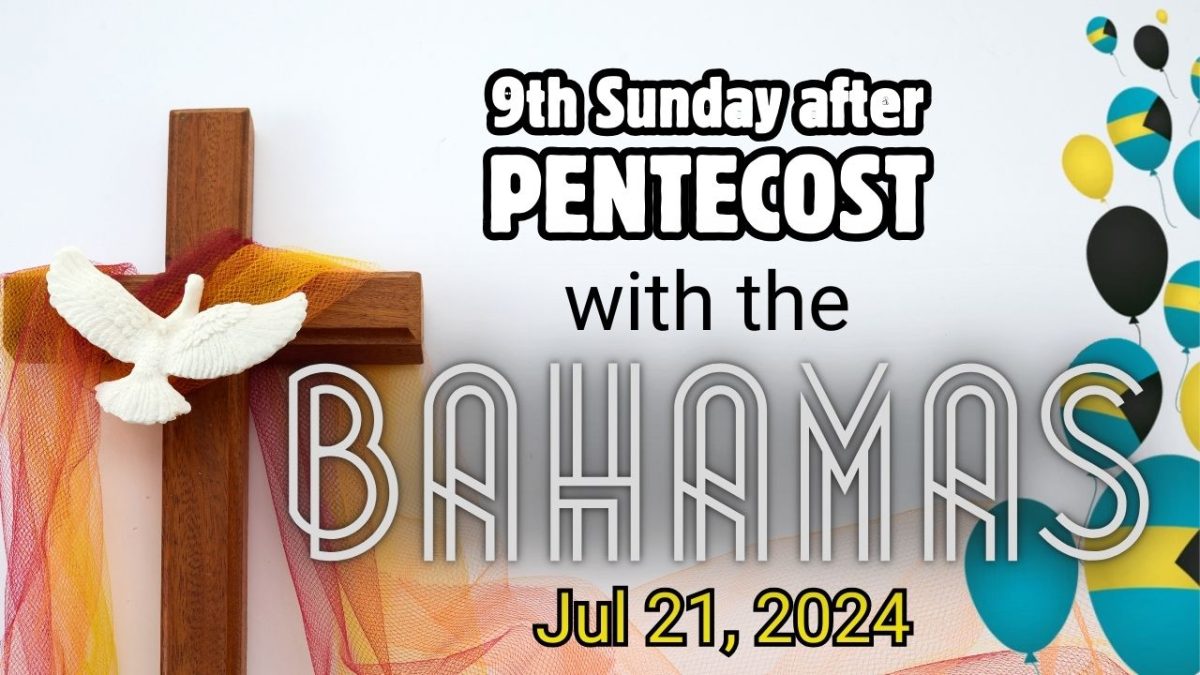
Greetings, dear readers.
It is wonderful to connect with all of you today. On this 9th Sunday after Pentecost, I have some reflections to share from the letter of Paul to the Ephesians. Specifically, I want to delve into Ephesians chapter 2, verses 13 to 14:
“To the Gentiles, Paul writes, remember that you were at that time without Christ, being aliens from the commonwealth of Israel and strangers to the covenants of promise, having no hope and without God in the world. But now, writes Paul, in Christ Jesus, you who were once far off have been brought near by the blood of Christ.”
Paul’s words, “You who were once far off have been brought near by the blood of Christ,” resonate deeply as they encapsulate the transformative power of Christ’s love.
The Power of Perspective
At home, my daughters love to play with an old cell phone. They make videos, take pictures, and even edit funny features into their creations. Recently, they attached the phone to a remote control vehicle and cast the image to a TV in another room, using it as a spy cam. They even claimed to know all the ingredients of a smoothie I was making!
What stands out for me is how sometimes they zoom in so closely on a picture that it becomes difficult to identify what it is. This playful “zooming in” mirrors the way we often view our lives, focusing intently on our immediate concerns and missing the larger picture.
Lessons from Bible Study
This past Thursday evening at Bible study, we concluded our study of the book of Daniel. This study was meant to prepare those going to see a live production of Daniel in Lancaster. Throughout our study, we were reminded again and again of the reality of God’s providence, or God’s protective care and control over all creation, our lives included.
God’s providence can be easy to miss when we focus too narrowly on our own immediate situations. When we zoom in too closely, we might question if God is aware of our personal struggles and circumstances.
Zooming Out with the Book of Daniel
The book of Daniel helps us to zoom out and see God’s hand at work not just in Daniel’s immediate circumstances under Babylonian exile, but across centuries. God was always at work, even amidst the evil powers of other kingdoms, drawing people toward His ultimate plan.
David’s Vision Expanded
Today’s scripture from the Old Testament recounts David’s desire to build a temple for the Ark of the Covenant. However, God, through the prophet Nathan, redefined David’s vision by declaring that He, the Lord, would make David a house—a dynasty, culminating in the eternal reign of Christ from David’s line. This required David to zoom out and see God’s greater plan beyond his own immediate desires.
Jesus’s Compassionate Call
In today’s Gospel reading from Mark, we find Jesus inviting His disciples to rest after returning from their missions. Despite their excitement and the constant demands from people, this was also an invitation to zoom out and reflect on the bigger picture of their ministry.
When Jesus saw the crowd as sheep without a shepherd, He was moved with compassion. His healing and teaching were previews of His promise in John 12:32: “And I, when I am lifted up from the earth, will draw all people to myself.” This illustrates His working to draw all creation unto Himself, emphasizing a broader divine vision.
Contemporary Divisions and Unity in Christ
Our world today is fraught with divisions—race, ethnicity, gender, socioeconomic status, political affiliations, even beliefs about masks and vaccines. When we let these divisions dictate our relationships, we miss out on the profound unity we have in Christ.
Paul’s message to the Ephesians challenges us to recognize that, despite differences, we are all reconciled to the one true God through Jesus Christ. Through faith, we become fellow citizens in God’s household, transcending our divisions.
Personal Reflection: Where Are You?
So, I invite you to reflect: Where are you in this world today? What personal battles are you facing? Are you like David, perhaps comfortable and forgetting your dependence on God? Or are you like the excited disciples, missing the point of God’s work through you? Or maybe like the Ephesians, focusing on what separates rather than unites us?
The Bigger Picture
Remember that God’s view is both from a distance and intimately close. His providence is ever-active, and though we may struggle to see the larger picture, God is drawing us toward His purposes. My prayer for us today is simple: May God grant us the grace to see His hand at work in our lives, to find faith and courage in His guidance, and to remain faithful in following His divine direction.
Thank you for reading, and may you find peace and clarity in embracing the bigger picture of God’s providence in your life.
Amen
by Peter Owadayo
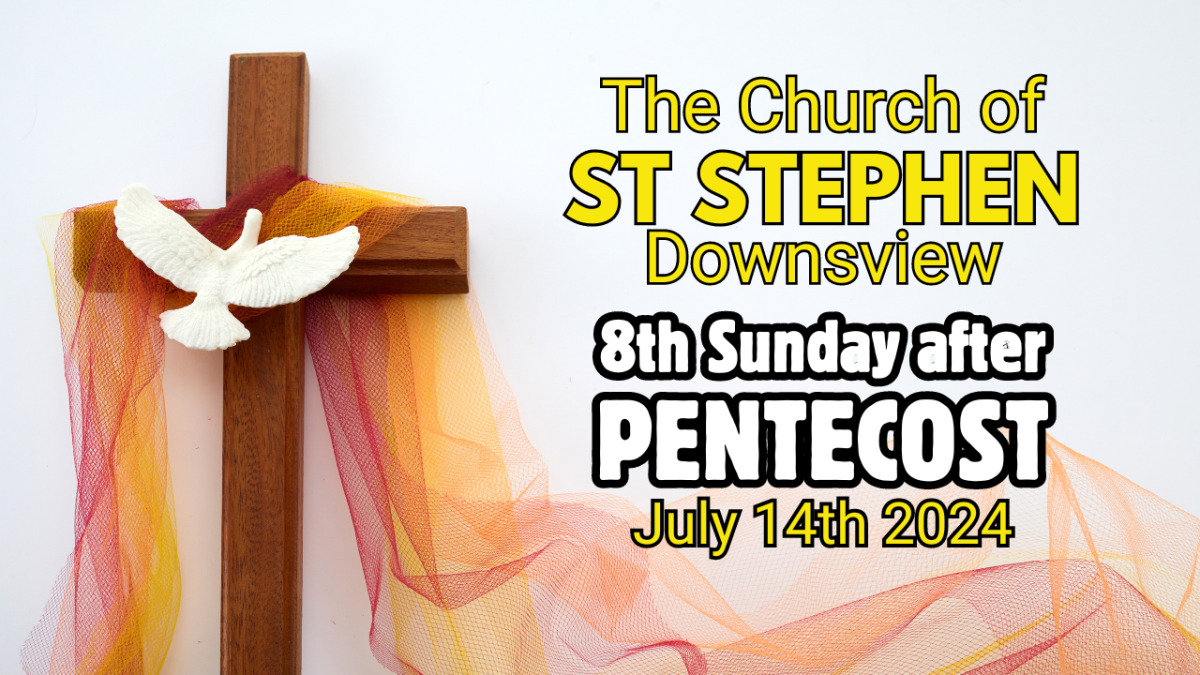
Sometimes God physically touches His people, and in those moments, you can feel His presence in an indescribable way—what I like to call “Holy Ghost goosebumps.” There might be heat, tingling, or other sensations that reveal His glorious presence among us. This morning, I want to take you on a journey of surrendering yourself under God’s control, drawing inspiration from Moses’ plea in Exodus chapter 33, “Lord, please show me your glory.”
**Surrendering to God’s Control**
Today, we are going to explore how we can witness God’s glory by releasing our spirit under the Holy Spirit’s control. Just as Moses did, we will see His glory if we let go and surrender to Him fully. It’s through surrender that we can truly experience the enduring mercy and might of the Lord, our omnipotent Father
.
**Welcoming the Holy Spirit**
I invite you to welcome the Holy Spirit into your life and your space. Sing with me if you know the words:
“Holy Spirit, thou art welcome in this place.
Holy Spirit, thou art welcome in this place.
Omnipotent Father of mercy and grace, thou art welcome in this place.”
**Prayer for Healing and Restoration**
Lord Jesus Christ, you are the great physician. This morning, we ask for your presence to move among us. Heal every infirmity, restore lives, mend broken relationships, and bring joy into our homes. Provide strength to our seniors and open doors of opportunity for your people.
**Living a Joyful Life in God**
God has called us to live a joyful and victorious life in Him. There is no specific formula for a faith-filled life, but He has given us ways to strengthen our faith daily. Through prayer, reading, and meditating on His word, and serving others, we can grow closer to Him.
**God at the Center**
When we make God the center of our lives, every situation and circumstance will follow His divine will. Just like in the house of Obed-Edom, where everything fell into place because they recognized and honored the presence of God, we too can experience His blessings when we keep Him at the heart of our lives.
**Recognizing God’s Presence**
The Ark of the Covenant, a symbol of God’s supreme power and presence, contained the laws that guided His people. When the Ark was taken away, the Israelites strayed from God’s commandments. However, King David’s act of bringing the neglected Ark back to his new capital demonstrated the importance of returning to God and recognizing His presence in our lives.
Sometimes we may act out of our own foolishness, like Lot’s wife, who turned back and became a pillar of salt. But when we recognize God’s presence and move forward in faith, we embrace His joy and blessings.
**Obedience and Blessings**
When we obey God’s word, we open ourselves to His blessings. David and the Israelites rejoiced at the triumphant return of the Ark, which symbolized the presence of God among them. Similarly, Jesus Christ is our Ark, the manifestation of God’s favor, and through Him, our prayers and praises are accepted.
**A Call to Put God First**
Beloved, when we put God first in our lives, our homes, and our work, we will see His glory revealed. Just as Obed-Edom was blessed for valuing God’s presence, we too can attract blessings by making God the center. Our lives should be an open book that mirrors God’s love and grace to our community.
**Conclusion**
In our journey, let’s allow God to be paramount. Trust in Him for solutions, and let’s ensure His commandments guide our decisions. As we pray:
“Eternal God, move in our individual lives. As we journey in this race, Holy Spirit, we need your intervention, especially in these end times. Help us live our lives carefully, with you at the center.”
Amen.
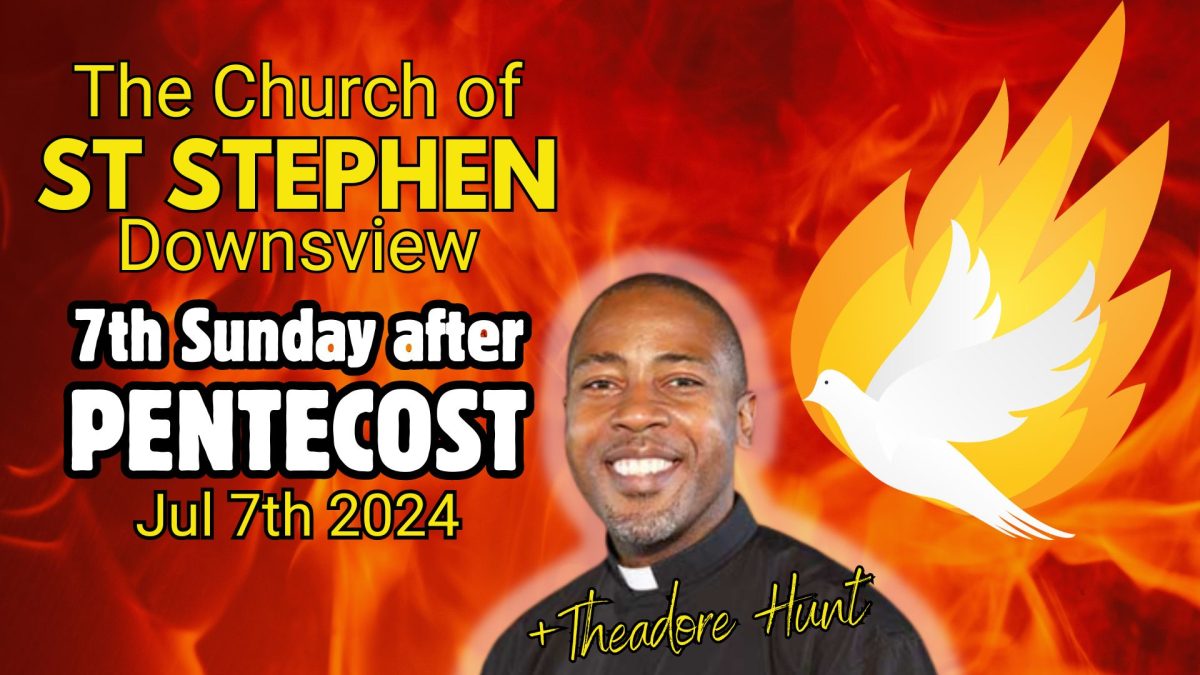 Some words from Mark’s Gospel, chapter 6, reading from verse 7 to 9, have been resonating with me deeply. In these verses, we hear that Jesus called the twelve and began to send them out two by two and gave them authority over the unclean spirits. He ordered them to take nothing for their journey except a staff: no bread, no bag, no money in their belts, but to wear sandals and not to put on two tunics.
Some words from Mark’s Gospel, chapter 6, reading from verse 7 to 9, have been resonating with me deeply. In these verses, we hear that Jesus called the twelve and began to send them out two by two and gave them authority over the unclean spirits. He ordered them to take nothing for their journey except a staff: no bread, no bag, no money in their belts, but to wear sandals and not to put on two tunics.
As we’ve journeyed with Jesus over these past few Sundays through the lens of Mark’s gospel, I’ve come to see that Mark offers us glimpses of faith—faith as it is oriented toward Jesus as both its source and object. This faith revolves around his power at work in the lives of those he encountered.
Faith in Action
In Jesus’s earthly ministry, he traveled around teaching and proclaiming the gospel of the kingdom of God, healing many who were brought to him in various conditions needing healing. By doing so, he kindled the faith of those around him and invited them to ponder who he was—one who could teach with such power and authority.
When Jesus stilled the storm in the company of his disciples, their faith was once again stoked, prompting them to ask, “Who then is this that even the wind and the sea obey him?” This question echoes through the narratives we’ve explored, from the faith of Jairus and his healed daughter to the unnamed woman whose faith led her to touch Jesus’s clothing for healing.
Faith in Jesus’s Hometown
Today, Mark contrasts two examples of faith: the faith, or lack thereof, in Jesus’s hometown of Nazareth and the faith of the twelve disciples whom Jesus sent out. Upon returning to Nazareth with his disciples, Jesus taught among those who had known him since childhood. While they recognized the wisdom in his teachings and witnessed great deeds of power, their familiarity bred contempt. They could not reconcile the man they knew with the authority he displayed, and thus their unbelief hindered Jesus’s work among them.
The Warning of Prejudices
This passage serves as a caution about how our prejudices and preconceived notions can limit our understanding and experience of God’s work. When we pigeonhole God, viewing Jesus merely as an interesting historical figure, an excellent teacher, or a great prophet, we miss out on recognizing him as our Lord and God.
The Disciples’ Example
In stark contrast to the unbelief in Nazareth is the faith of the disciples. Jesus gave them authority over unclean spirits and sent them out with nothing but the clothes on their backs to proclaim the message of repentance, cast out demons, and heal the sick. This sends a profound message about trust and dependence on God. Like the disciples, we are called to lean not on our own strength but on God’s provision and guidance.
Our Role as Modern Disciples
As modern-day followers of Jesus, we stand on the shoulders of these early disciples, called to continue their mission. We are sent out not with our own authority, but with God’s. It’s not our efforts that sustain us; it’s God who equips and supports us. As a church, reflecting on the seventy years past and the years ahead, we may doubt our strength, but it is God who supplies what we need for the journey.
Dependence on God
True faith often becomes evident in times of lack. When we have nothing else to lean on, we recognize our deep dependence on God. Too much abundance can lead to self-reliance, but in moments of bare necessity, God’s sustaining power becomes clear. Blessed are those who know their need of God, for theirs is the kingdom of heaven.
Concluding Thoughts
The two contrasting examples of faith in Mark’s Gospel—unbelief in Nazareth and the disciples’ faith—remind us that Jesus’s presence demands a response. We will either embrace faith or turn away in disbelief. Let us choose to be like the disciples, welcoming Jesus into our lives and relying on his power.
In doing so, our very lives become conduits for God’s work, living prophetically to invite others to encounter the same Jesus we have. Beyond what we think we know about Jesus, I pray that we all have a fresh encounter with him today, recognizing him not just as a historical figure or great teacher, but as the Lord and God of our lives and of all creation.
My prayer is that we would respond obediently to his call and serve him faithfully throughout our lives.
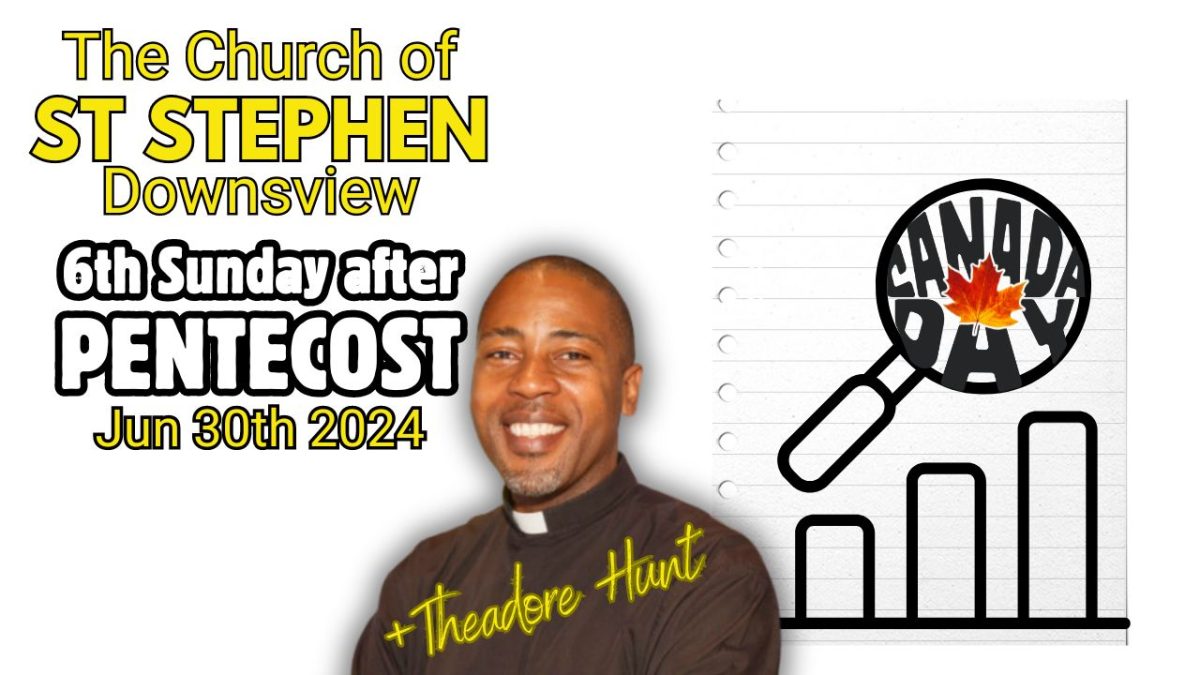 Everyone good? Today, I’d like to share some reflections from Mark’s Gospel, Chapter Five, verses 22 to 24. This passage introduces us to Jairus, one of the leaders of the synagogue. Jairus came to Jesus, fell at His feet, and begged repeatedly, “My little daughter is at the point of death. Come and lay your hands on her so that she may be made well and live.” Moved by his plea, Jesus went with him.
Everyone good? Today, I’d like to share some reflections from Mark’s Gospel, Chapter Five, verses 22 to 24. This passage introduces us to Jairus, one of the leaders of the synagogue. Jairus came to Jesus, fell at His feet, and begged repeatedly, “My little daughter is at the point of death. Come and lay your hands on her so that she may be made well and live.” Moved by his plea, Jesus went with him.
The Journey from Fear to Faith
We often encounter fear of the unknown, fear of others’ opinions, and fear of change. These fears can overwhelm us, particularly when we are praying for something we desperately need. Just last Sunday, we heard in the Gospel reading about the disciples’ fear during a powerful storm at sea, with Jesus asleep in the boat. Mark’s account, I believe, is not random but carefully placed to highlight a transformation from fear to faith.
In the midst of that storm, the disciples were terrified. When Jesus woke and calmed the storm, the disciples asked, “Who then is this, that even the wind and the waves obey him?” This question captured their ignorance, confusion, and the beginning of their understanding. It opened a pathway to deeper faith.
Embracing Christian Discipleship
Our Christian journey is fraught with uncertainties. We are bound to face situations where we feel unsure and afraid. How do we navigate the space between fear and faith? Jairus faced this predicament as his daughter lay dying. He risked his reputation and sought out Jesus amid a crowd clamoring for His attention. Despite his fears, Jairus begged Jesus repeatedly, demonstrating his readiness to shed any pretense.
Jesus responded without hesitation, following Jairus to his home. Upon arrival, Jesus took Jairus’s daughter by the hand and said, “Talitha koum,” meaning “Little girl, get up.” Immediately, she got up and started walking as if nothing was ever wrong. Jesus told Jairus, “Do not fear, only believe.”
Confronting Our Own Fears
We are often held back from reaching out to God due to our fears and misconceptions. We might feel our concerns are less pressing than others or consider ourselves unworthy. These fears mirror those of the woman suffering from hemorrhages for twelve years. By Jewish law, her touch would make others ceremonially unclean. Yet, in her desperation and faith, she touched Jesus’s clothes, believing she would be healed.
The Miraculous Power of Faith
This woman’s touch became her channel for healing. She acted on her faith, despite her fears. Like Jairus and this woman, we are called to have faith in Jesus’s presence among us. This faith draws us out from the dark places in our lives, from following the crowd, and from merely being admirers of Jesus. It pulls us into a deeper, more committed discipleship.
Jesus calls us away from our fears and into faith, much like He did the disciples who were hiding in fear before Pentecost. In the upper room, they were transformed by God’s presence, transitioning from fear to bold, public proclamation of their faith.
The Light of Christ in Our Lives
Every day, in morning prayer, we recite the Benedictus, declaring, “In the tender compassion of our God, the dawn from on high shall break upon us to shine upon those who dwell in darkness and the shadow of death and to guide our feet into the way of peace.”
The shadow of death doesn’t just mean physical death; it symbolizes all the areas we try to shield from God’s light. It’s like a solar eclipse that temporarily blocks the sun’s light. Christ’s light, however, penetrates even these dark corners, leading us into peace.
Keeping Our Eyes on Jesus
As Jesus guided Jairus through his fears, He guides us too. By focusing our faith on Him, we learn to navigate the space between fear and faith. Jesus’s words resonate deeply: “Do not fear. Just believe.”
In this journey, let’s keep our eyes trained on Jesus. It is only through Him that we can transform our fears into unwavering faith.
Amen.
 As I reflect on my own Christian journey, and on the nature of the Christian journey more broadly, I am continually reminded of how closely our response to Jesus’s call mirrors Abraham’s response to God’s call in Genesis 12. God said to Abraham, “Go from your country, your people and your father’s household to the land I will show you. I will make you into a great nation, and I will bless you; I will make your name great, and you will be a blessing.”
As I reflect on my own Christian journey, and on the nature of the Christian journey more broadly, I am continually reminded of how closely our response to Jesus’s call mirrors Abraham’s response to God’s call in Genesis 12. God said to Abraham, “Go from your country, your people and your father’s household to the land I will show you. I will make you into a great nation, and I will bless you; I will make your name great, and you will be a blessing.”
Just as God called Abraham into an unimaginable future, our Christian journey begins with a call from God. Though the destination is unknown, the journey is marked by God’s assurance and promises. Abraham’s journey was one of faith, walking by faith and not by sight, trusting that God would fulfill His promises.
A Call and A Promise
Abraham’s call was not solely about him, but about God’s purposes for His kingdom. God promised to bless Abraham and make him a great nation, not for Abraham’s sake alone, but so that he could be a blessing to others. Similarly, our journey of faith is not only for ourselves but for God’s greater purposes. Abraham’s unknown destination underscores the necessity of trust in God’s promises.
In our faith journey, the greatness to which God calls us often begins with small acts of obedience and faith. Jesus teaches this through two parables about the kingdom of God. The first likens the kingdom to a man who scatters seed, which grows independently. This parable emphasizes that the growth of God’s kingdom does not depend on our power but on God’s inherent rhythm within creation.
The Seed and Its Growth
The growth of the kingdom is a divine process. We sow, but it is God who brings the harvest. This dependable rhythm in creation assures us that our efforts are part of something much greater, ultimately under God’s control.
In the second parable, Jesus compares the kingdom to a mustard seed – the smallest of all seeds – that grows into the largest of garden plants. This demonstrates that while the kingdom of God may start small, it grows beyond our imagination, providing rest for many. Our faithfulness in small things is crucial, as it is through such seemingly insignificant beginnings that God unfolds His kingdom.
God’s Unseen Hand
This pattern of small beginnings leading to grand outcomes is evident throughout the Bible. David, the youngest and most insignificant of Jesse’s sons, is chosen by God to establish His kingdom. Despite human opposition, God’s purpose prevails, manifesting His faithfulness in unexpected ways.
Similarly, Jesus, born in humble circumstances, was dismissed by many as the Messiah because of His modest origins. Yet, in Him, God’s promise of salvation becomes reality. This same pattern repeats in the lives of His disciples, many of whom were ordinary, uneducated fishermen. Their faithfulness and obedience, like the mustard seed, led to the growth of the kingdom, impacting generations.
Our Role in God’s Kingdom
Today, as we gather here at St. Stephen, we must ask ourselves if we recognize God’s work in our midst. Are we discerning His faithfulness over time, bringing His kingdom into being from humble beginnings?
St. Paul reminds us not to view others from a merely human perspective. We are all unfinished works of a loving and gracious God. The seed of God’s word planted in our hearts will bear fruit in its time.
Faith calls us to trust in God’s dependability to bring us exactly where we need to be. We may not understand when or how our prayers and efforts will bear fruit, but we can trust that God is faithful. He will complete the good work He has begun in us.
A New Creation in Christ
Paul proclaims, “If anyone is in Christ, there is a new creation; everything old has passed away; see, everything has become new.” This transformation may not be immediately apparent to the natural eye, but it is real and instantaneous. Living in this new creation, we no longer live for ourselves but for Christ.
In Him, our lives, though they may begin like tiny mustard seeds, will grow to provide rest and refuge for many. Like Abraham, we are called to journey in faith, trusting in God to open up new futures before us.
May God grant us the eyes to see, the ears to hear, and the strength and courage to trust in His faithfulness, following Him wherever He leads.
Amen.
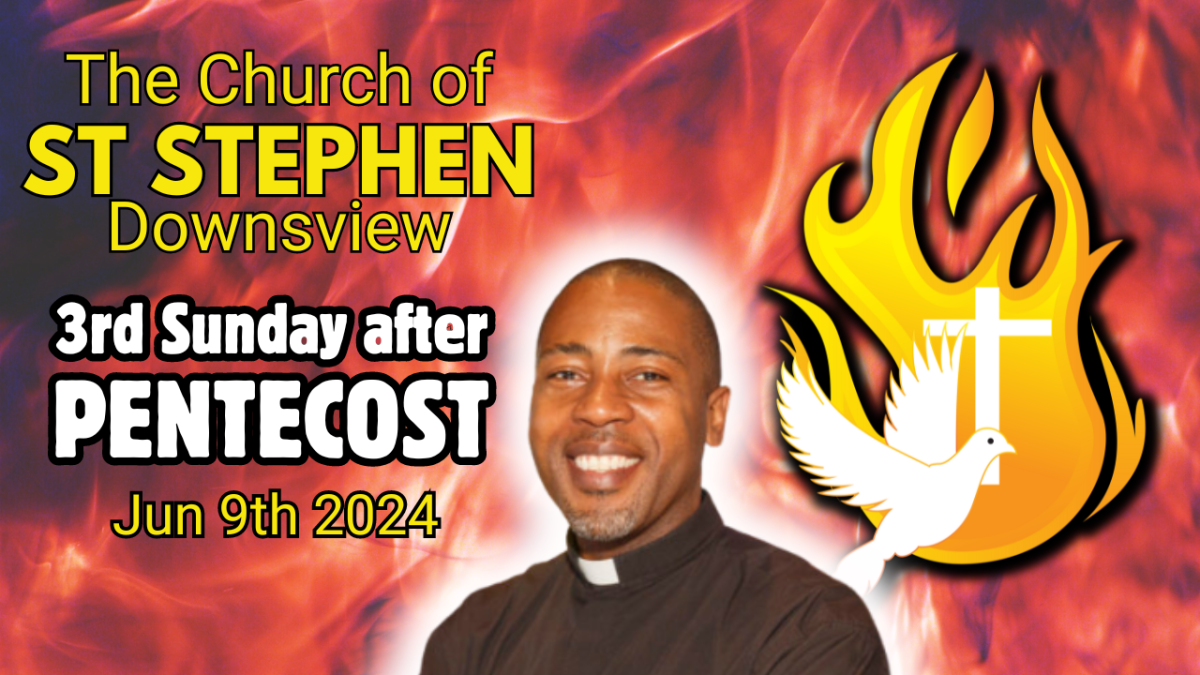 Some words from Mark’s Gospel chapter 3, reading from verses 33 to 35: Jesus asked, “Who are my mother and my brothers?” And looking at those who sat around Him, He said, “Here are My mother and My brothers. Whoever does the will of God is My brother and sister and mother.” Last Monday afternoon, I was listening to a news report by a local broadcaster. The report seemed to lead up to the 80th celebration of D-Day, which had just been observed the previous Thursday, June 6th. D-Day marked the beginning of the end of World War II, as Allied troops landed in Normandy, France. The broadcast, sadly, chronicled the rise of the far right, especially among the younger generation. This new wave of far-right sentiment carried with it many of the old ideologies of the Nazi regime, instigating a rise in anti-immigrant and anti-Semitic sentiment across Germany and beyond.
Some words from Mark’s Gospel chapter 3, reading from verses 33 to 35: Jesus asked, “Who are my mother and my brothers?” And looking at those who sat around Him, He said, “Here are My mother and My brothers. Whoever does the will of God is My brother and sister and mother.” Last Monday afternoon, I was listening to a news report by a local broadcaster. The report seemed to lead up to the 80th celebration of D-Day, which had just been observed the previous Thursday, June 6th. D-Day marked the beginning of the end of World War II, as Allied troops landed in Normandy, France. The broadcast, sadly, chronicled the rise of the far right, especially among the younger generation. This new wave of far-right sentiment carried with it many of the old ideologies of the Nazi regime, instigating a rise in anti-immigrant and anti-Semitic sentiment across Germany and beyond.
The Rise of Divisive Ideologies
These young people have adopted an insidious nationalist refrain: “Germany for the Germans.” They frame this ideology as mere national pride, but we know too well where such divisive thinking leads. Similar tendencies towards increased conservatism and nationalism have emerged worldwide, especially in the post-pandemic era. There’s an observable shift in public ideology towards greater authoritarianism and a pervasive sentiment of “us vs. them.” In our increasingly polarized world, we see this not just in politics but also within our religious communities, on social media, and in cultural and ethnic relations. The pandemic’s enforced isolation seems to have exacerbated this divide, leading us to label others in dehumanizing ways. Once we label others as “the other,” we tacitly grant ourselves permission to treat them as less than human.
Embracing Labels Over God’s Sovereignty
This isn’t a new problem. The Israelites in 1 Samuel requested a king to govern over them, like other nations, despite God’s warnings. They rejected their divine privilege, yearning instead for earthly rulers who ultimately oppressed them. Similarly, today’s labels—conservative, liberal, immigrant, native—become our masters, overshadowing our true identity in God. **Christ’s Unifying Message** The Gospel of Mark tells us about Jesus’ ministry, filled with miraculous healings and proclamations of God’s kingdom. Despite these miracles, Jesus was often labeled negatively—out of His mind, demon-possessed. Such labels aimed to undermine His divine mission and discredit Him in the eyes of the people. When truth and goodness are labeled as madness or evil, it’s a strategy to maintain the status quo and resist transformative change. Jesus’ teachings demonstrate that labels are ultimately meaningless in God’s kingdom. His actions—freeing the oppressed and healing the suffering—reveal the truth: “If the Son has set you free, you are free indeed.” Our connection to Christ is based on faith, expressed through obedience to God’s will.
Living Free from Labels
As children of God, our identities transcend societal labels. I am more profoundly a child of God and a joint heir with Christ than any label—be it my ethnicity, nationality, or social status. This is the liberating message of the Gospel. Such labels are often the cause of division and conflict, as they justify treating others as less worthy. Anglican Bishop N.T. Wright emphasizes that the church must always prioritize loyalty to Jesus over any earthly identity. Our communal life, rooted in Christ, proclaims the Gospel to the world, showcasing unity amid diversity.
Conclusion
May we seek not other lords or labels to define us but remember that we are first and foremost children of the living God. This recognition calls us to new levels of unity, transcending the human categories that divide us.
Let Us Pray
Oh, Lord, unlike earthly kings, You are ever steadfast and faithful. You send us Your Son, Jesus the Christ, to rule over us not as a tyrant but as a gentle shepherd. Keep us united and strong in this faith, that we may always know Your presence in our lives. And when You call us home, may we enter Your heavenly kingdom where You live and reign forever and ever. Amen.
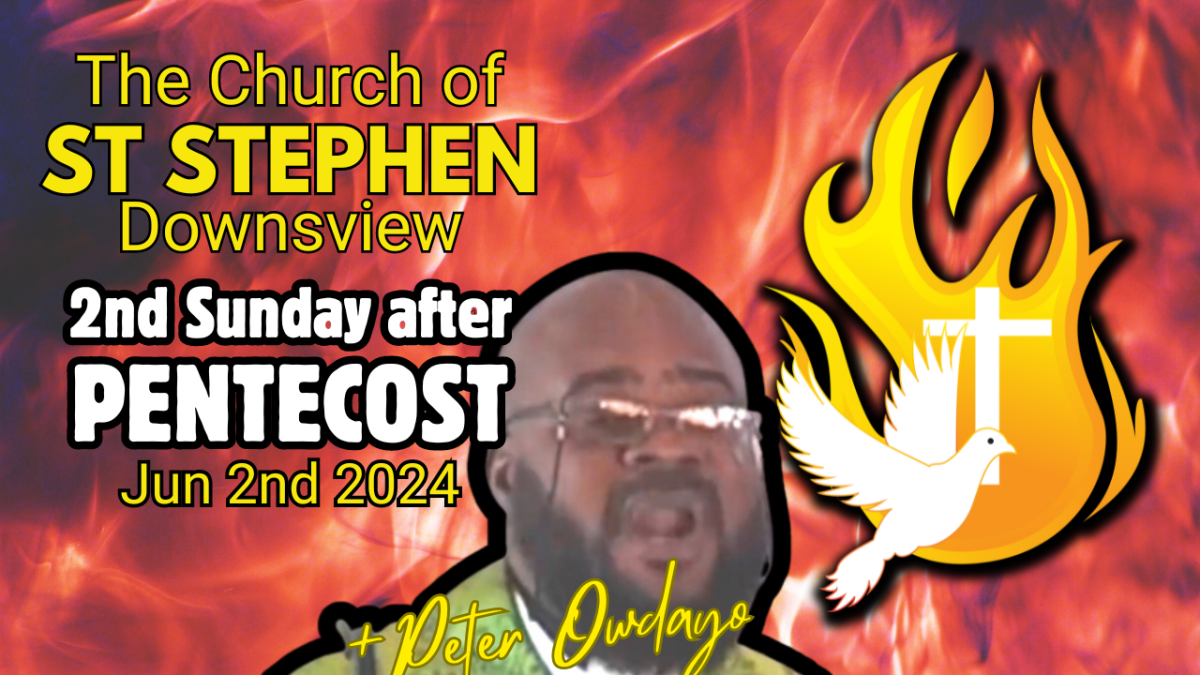 As I reflect on this morning’s scripture, I am reminded of the profoundness and significance of hearing the voice of God. By God’s grace, today we shall delve into understanding how we can hear from God, both individually and as a church.
As I reflect on this morning’s scripture, I am reminded of the profoundness and significance of hearing the voice of God. By God’s grace, today we shall delve into understanding how we can hear from God, both individually and as a church.
The Biblical Call to Hear
We begin by looking at Samuel’s story in 1 Samuel 3:1-10. The boy Samuel ministered to the Lord under Eli and had not yet known the Lord personally. However, he was dedicated to God and open to hearing His voice. This is a powerful reminder that God speaks to us, and often we need to be in a state of readiness to hear Him. At that time, Eli’s eyesight had grown dim, and visions were not widespread – emphasizing that hearing from God is not a trivial matter but a rare and precious gift.
The Importance of Spiritual Hearing
In Matthew 11:15 and Revelation 2:29, the Bible states, “He who has ears to hear, let him hear what the Spirit says to the churches.” This call to listen is not about physical hearing but developing a spiritual listening ear. It’s about being receptive and tuning into what the Spirit is conveying to us. Many times, we hear but do not retain or act upon what we are told. This indicates the need for a deep, spiritual connection to discern God’s direction for our lives.
Listening as a Devotion
Samuel’s story highlights his dedication from a young age. Unlike Eli’s sons, Hophni and Phinehas, who misbehaved in the temple, Samuel served with a pure heart. This distinction demonstrates the importance of dedicating oneself wholly to God, no matter one’s age. Listening to God requires a heart that seeks to please Him above all else, as Samuel did.
Practical Steps to Hear God
Hearing from God is crucial for our spiritual growth and gives us direction in life:
- Spiritual Awareness: Just as Samuel was alert in the spirit, we too must be spiritually aware and attuned to God’s voice.
- Obedience: Obedience to God’s voice brings progress and blessings. Samuel’s life exemplifies this truth, as he grew to be a great leader and prophet by heeding God’s call.
- Youthful Devotion: Ecclesiastes 12:1 encourages us to remember our Creator in the days of our youth. Samuel’s youth was dedicated to serving God, a call that is relevant for all of us, regardless of age.
Transforming Faith through Hearing
When we begin to hear from God, our faith rises, and our perspectives shift from a worldly to a godly viewpoint. We no longer see challenges as the end, but as opportunities to witness God’s hand. This transformation allows us to serve God effectively and align ourselves with His plans.
Overcoming Spiritual Deafness
A major challenge among Christians today is the inability to discern God’s voice. Many run to prophets for guidance, only to be misled by false teachings. We must strive to develop a personal relationship with God, where we can hear Him directly. This personal encounter ensures we can discern between the voice of God and the voice of the enemy.
Conclusion: Embracing God’s Voice
As we conclude, I urge each of us to pray for the ability to hear God’s voice clearly. Whether through the small still voice, or through scriptures, let’s be attentive and responsive. Let this week be a time where God speaks to us and provides us with direction.
Let us pray:
Thank you, God, for the word You have sent to us this morning. We want to hear from You as a church and as individuals. Father, speak to us and give us direction. In the name of God the Father, God the Son, and God the Holy Spirit. Amen.
Through hearing God’s voice, we find purpose, direction, and spiritual growth. Let us tune our hearts and minds to listen to Him, continually striving to walk in His ways.










